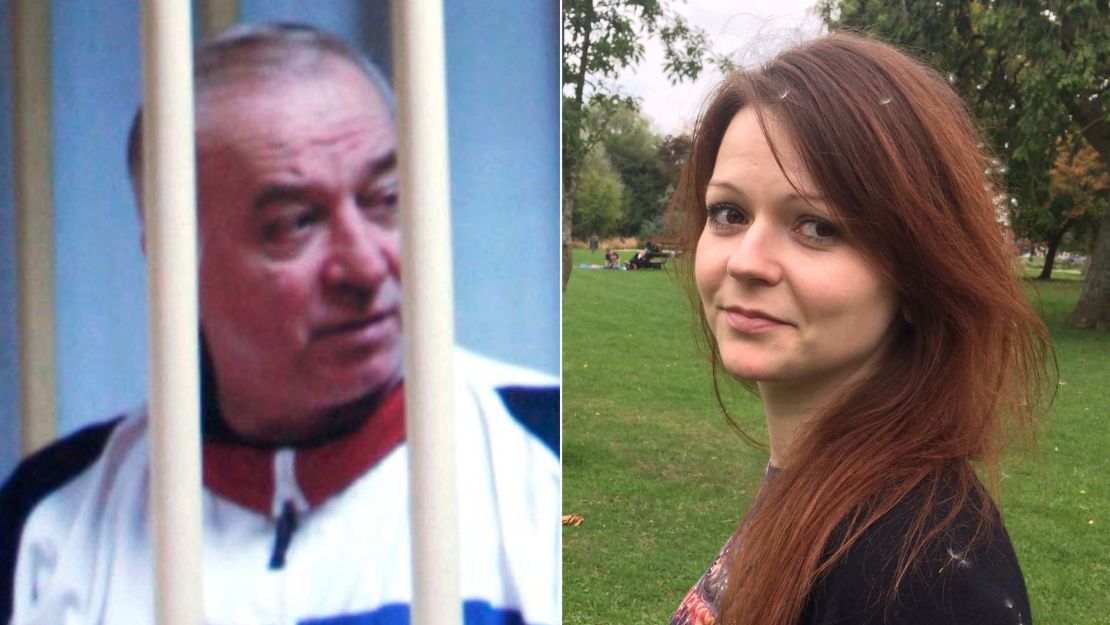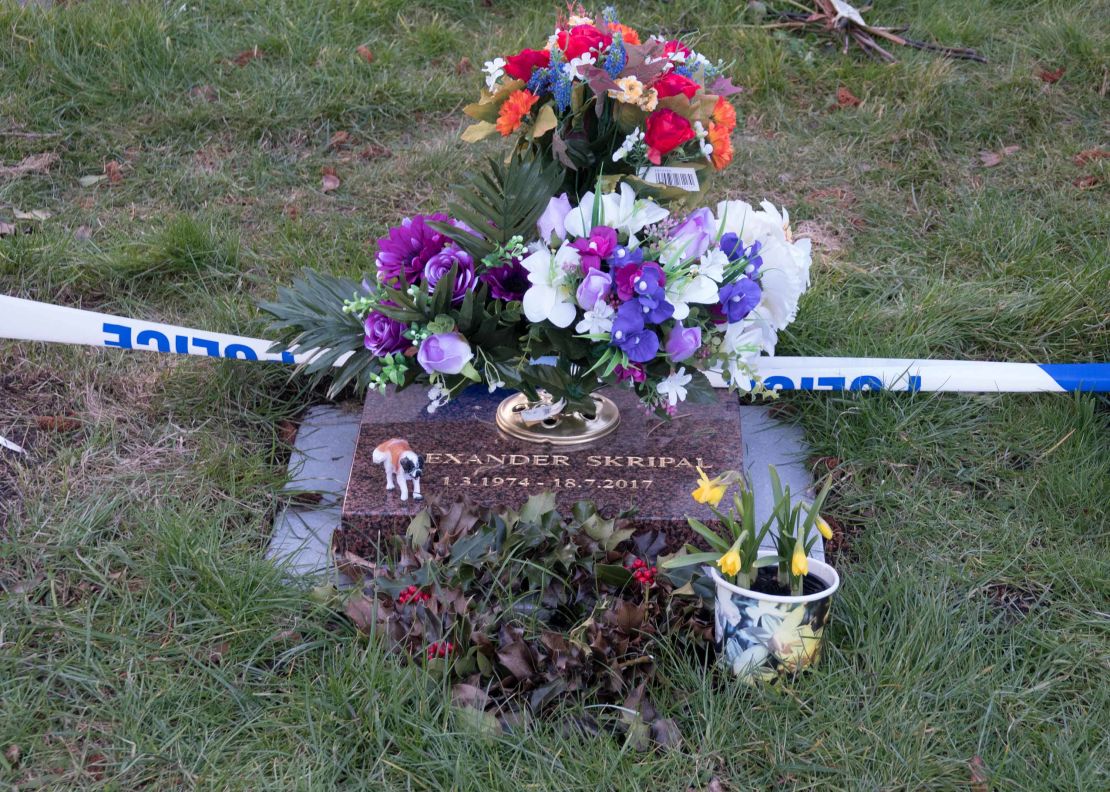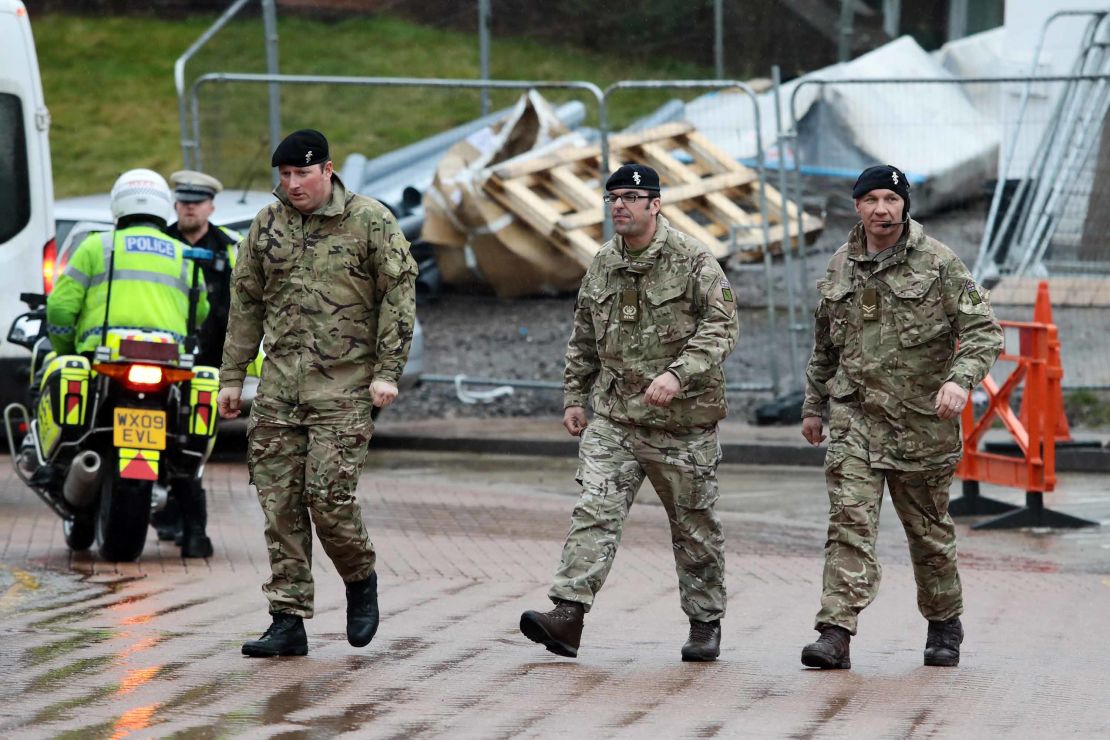Britain’s home secretary and government ministers held an emergency meeting Saturday as investigators probe the attempt to kill a former Russian double agent and his daughter using a rare nerve agent.
Some 180 military personnel have been deployed to the normally quiet cathedral city of Salisbury in southern England to help police as they investigate several sites amid concerns over potential contamination.
Former Russian spy Sergei Skripal, 66, and his daughter, Yulia, 33, remain hospitalized in “very serious condition” after being poisoned this week in Salisbury, Home Secretary Amber Rudd said as she visited the city Friday.
The father and daughter – believed by authorities to have been deliberately targeted – were found slumped on a bench near a shopping center on Sunday afternoon.

As part of what’s called a Cobra meeting, Rudd broughttogether senior Cabinet ministers Saturday to hear the latest updates on the situation, Downing Street said.
Following the meeting, Rudd said UK police had identified more than 200 witnesses and 240 pieces of evidence in the attempted killing.
“I want to stress that they are proceeding with speed and professionalism,” Rudd said in a statement broadcast by ITN. “We are putting in enormous resources to ensure that they have all the support that they need to do that.”
Detective Sgt. Nick Bailey, a police officer who also fell ill, is in serious condition but is “conversing and engaging” with visitors, Rudd said earlier.
Authorities said 21 people received medical attention in the aftermath of the attack, but only three people were still being treated Friday.
In a statement Saturday, Wiltshire police, the local force, said Bailey wished to express his thanks to the public for its support.
“Nick would like us to say on his behalf that he and his family are hugely grateful for all the messages of support from the public, and colleagues from the police family,” the police department said. “People have been so kind and he has expressed that he will never forget that kindness.”
Police have said they know what nerve agent used in the attack but have declined to name it or how they suspect it was administered.
Identifying the source of the nerve agent continues to be central to the probe, but Rudd has so far declined to name any potential culprits.
“We will have to wait until we’re absolutely clear what the consequences could be, and what the actual source of this nerve agent has been,” Rudd said in Salisbury. “At the moment, our priority is going to be the incident, which is why I’m here.”
Sites that have been cordoned off include the city center bench where the two were found, a pub and restaurant they had visited earlier, Skripal’s home, the graves of his wife, Lyudmila, and son, Alexander, and an industrial car park.
Investigators in hazmat suits returned Saturday to the cemetery, where authorities have erected a tent near the grave of Skripal’s wife. Entrances to the cemetery were closed off.
Counterterrorism police requested the deployment of military personnel to help “remove a number of vehicles and objects” in Salisbury, London’s Metropolitan Police said.

Russia: ‘Unfounded accusations’
Western intelligence services consider Russia a leading suspect based on previous attacks that used a similar substance and method, a Western intelligence official told CNN. The official cautioned the investigation was still in its early stages.
If a Moscow link were proved, it would plunge relations between the West and Russia to a new low.
On Friday, Russian Foreign Ministry Sergey Lavrov dismissed allegations of Russian involvement as “propaganda.” He said Russia was ready to assist “any investigation” but that it was “not necessary to hurl unfounded accusations on TV.”
Earlier this week, a spokesman for the Russian Embassy in London described comments by UK Foreign Secretary Boris Johnson – who vowed a “robust response” in the event that state involvement was proved – as “strongly anti-Russian.” The spokesman said Johnson’s comments were an attempt to politicize the affair, and he attacked the media for aiding the UK government’s efforts.
Johnson had said the case had “echoes” of what happened to former Russian spy Alexander Litvinenko, who died a slow death after drinking tea laced with highly radioactive polonium-210 in a London hotel in 2006.
A detailed UK inquiry later concluded that Russian President Vladimir Putin probably approved the operation by Russian agents to kill Litvinenko. The Russian Foreign Ministry dismissed the inquiry as politically motivated.
Lawmaker: ‘Genuine anger’

UK Security Minister Ben Wallace said Saturday that Britain would respond to the Salisbury attack with the “full force of the United Kingdom’s resources if that is an appropriate and proportionate thing to do.”
Speaking to BBC Radio 4, Wallace described the attack as a “very serious incident with horrendous outcomes.” However, he cautioned against rushing to judgment on who is responsible.
“We want to make sure we are effective in whatever our response is. If that is arresting a couple of people and getting them in jail, then that is what we shall do. If it’s further, there are lots of things that the United Kingdom can do – it is a powerful country, with a powerful economy, powerful allies, powerful military and powerful other capabilities. And we shall look at those – all.”
On Friday, John Glen, a member of Parliament for Salisbury, praised the calm response of the city’s residents to “an unprecedented occurrence in our country’s history” but acknowledged that some were demanding “decisive action.”
“As the immediate shock and concern regarding the incident recede and we reflect on what has happened, I suspect that these feelings we hold will give way to a genuine anger at the audacity of what has taken place within our city,” Glen said on his official Facebook page.
The government will not act precipitously, he said, but will examine the facts rationally. “Once these are established, then and only then, will an appropriate and proportionate course of action be taken,” the lawmaker said.
CNN’s Milena Veselinovic, Simon Cullen, James Gray and Mayra Cuevas contributed to this report.



